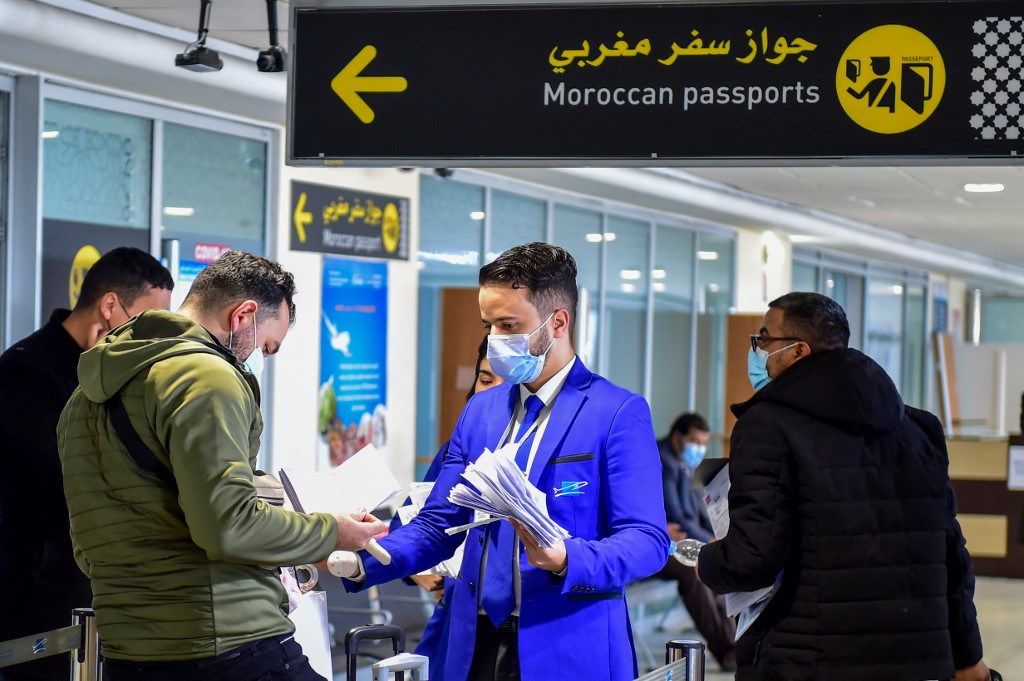São Paulo – Morocco reopened its air borders this Monday (7) after about three months without receiving international flights due to the pandemic of the new COVID-19 variant, Omicron, as announced by the Moroccan government in late January.
Since early November, days after South Africa reported the first omicron case, the country had barred international flights due to the high rate of contamination of the new variant. The government reopened its borders in mid-December but closed them again after the virus was detected domestically. The restriction was a severe blow to the tourism industry, one of the most significant Arab country’s economic sectors.
Restrictions
The reopening, however, is accompanied by a series of restrictions. Travelers arriving in Morocco must present a vaccination certificate, and a negative PCR test performed less than 48 hours before departure.
Upon arrival at the airports, passengers will have to undergo quick tests for COVID. According to a government statement, random PCR tests will also be carried out on groups of passengers.
The government said tourists could be submitted to an additional test at the hotel or residence 48 hours after entering Moroccan territory. Passengers who test positive must self-isolate. The government, however, did not specify whether full vaccination status includes booster shots.
A government committee member responsible for recommendations related to the pandemic said travelers who received the second vaccine shot over four months before the scheduled flight should present a booster shot certificate.
Maritime borders remain closed
The reopening does not yet extend to sea travel. According to a memorandum from the Moroccan Ministry of Transport and Logistics, Moroccan maritime borders will remain closed to contain the spread of Omicron until further notice.
Issued on February 4, the notice specifies the restriction does not extend to sea transport of commercial vehicles and other forms of commercial sea transport.
COVID-19 cases have been decreasing in the North African country. Morocco has over 60% of its population vaccinated and has the highest vaccination rate in Africa.
Tourism
Last November, closing borders left many Moroccan residents and foreigners stranded abroad. However, some flights from Turkey, Portugal, and the United Arab Emirates brought some of them home.
The health crisis has hit the Moroccan tourism sector hard, with an unprecedented 71% drop in tourist arrivals in 2021 compared to 2019. Twenty million fewer travelers visited the kingdom, resulting in a USD 91.5 million decline in sector revenue.
To boost tourism, the government has devised a program of partnerships with international tour operators and airlines. A global advertising campaign to promote the “Morocco destination” will be launched as soon as foreign tourists return.
The government also released a MAD 2 billion (about USD 214 million at the current rate) emergency plan to preserve jobs and allow tourism businesses to withstand financial constraints due to the loss of revenue.
*With information from RFI and Morocco World News.
Translated by Elúsio Brasileiro




